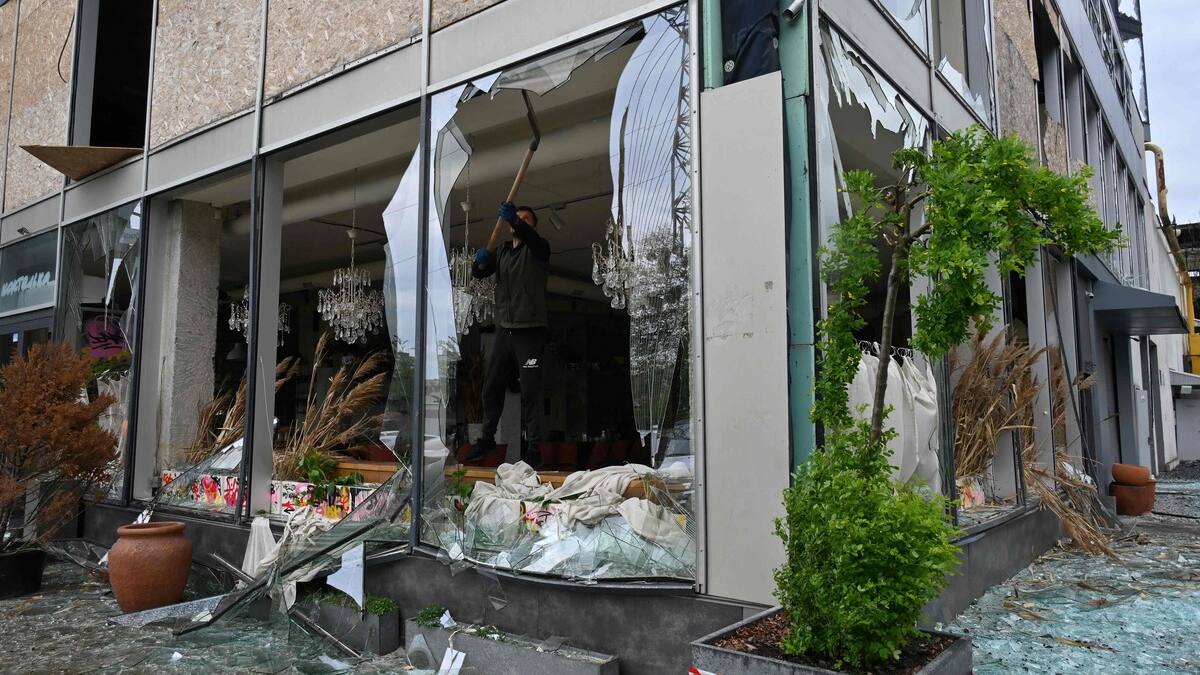
Across America, Republican candidates in the midterm elections are unleashing the “big lie” theory spread by Donald Trump — baseless accusations that the 2020 presidential election was stolen from him — highlighting the threat hanging over American democracy, experts warn. .
According to a tally by the Washington-based think tank Brookings Institution, 249 Republican candidates have expressed doubts about Democratic President Joe Biden’s victory in 567 major state and local elections.
American democracy has not known such “danger of disintegration” since World War II, warns Mark Baier, a former chief of staff and adviser to a US senator.
“Subscribing to the Big Lie has been an important campaign issue for many of those running for office who reject the outcome of the presidential election. How will these candidates react if they legitimately lose their own votes in November?” he worries.
The fraud allegations were never proven, but that didn’t stop former President Donald Trump and his allies from successfully convincing a significant portion of Republican voters that Joe Biden wasn’t legitimately elected.
For many Republican supporters, such as Terry Privett, who interviewed AFP recently in Florida, the size of the crowds that flocked to see him was undeniable evidence of deception.
Comparing Joe Biden and Donald Trump, the 50-year-old judges that the Democratic Party doesn’t attract mass audiences, “when you go to a Trump rally and thousands of people are trying to get in.”
And with that, “you know they stole the election,” he says.
Endorsing more than 200 Republican candidates in the Nov. 8 election, Donald Trump has made the “big lie” a prerequisite.
“Political analysis indicates that most democracies are not overthrown by revolutions or coups, but are destroyed from within,” says Barbara Wejnert, a political scientist at the State University of New York at Buffalo.
“America’s democracy is possible if the 2020 presidential election rejects the decision, or if Trump is re-elected.”
These concerns are less important if the candidates in question are marginalized.
But more than half of them had a good chance of winning, according to the Brookings Institution.
Local elections, for example for governors or attorney general positions, are considered particularly important.
These elected officials organize the ballots, oversee the counting and certify the results, and are therefore on the front lines.
According to States United Action, 58% of Americans in 29 states will vote in the Nov. 8 election, and at least one candidate who rejects the outcome of the 2020 presidential election wants access to these election activities.
If there is concern that these defeated candidates will try to cast doubt on the results, the real problem will be the winners, who will then be able to change the electoral rules in favor of subsequent candidates who share their views, analyzes the university’s Ann Krigler. Southern California.
“Democracy is weak and prone to corruption if those participating in the voting and governing process do not show awareness and honesty,” he told AFP.
“Telling lies or refusing to admit facts is fundamentally undemocratic. In short, by denying the obvious, you endanger the very foundation of our democracy,” says Vanderbilt University political science professor John Geer.
Another element reinforces the concerns: the states where most of these candidates are contesting the 2020 decision — Pennsylvania, Arizona, Michigan, Florida, Texas, Wisconsin and Georgia — are crucial for control of Congress and the White House.

/cdn.vox-cdn.com/uploads/chorus_asset/file/25417952/transformers_megatron.jpg)



More Stories
Ukraine: Ten killed in Russian and Ukrainian attacks
No presidential debate in 2024?
Republican “False Electoral Voters” | Trump has not been charged in the Michigan actions